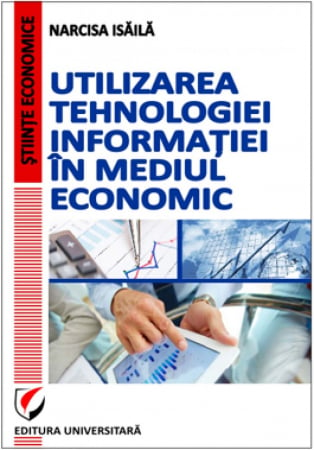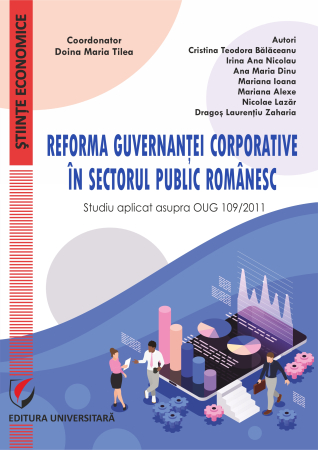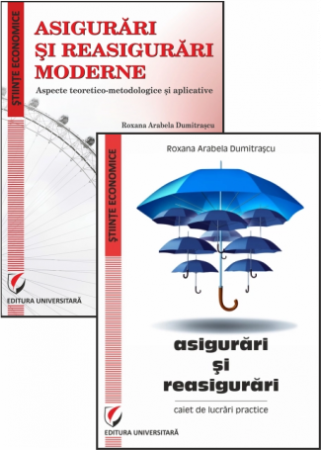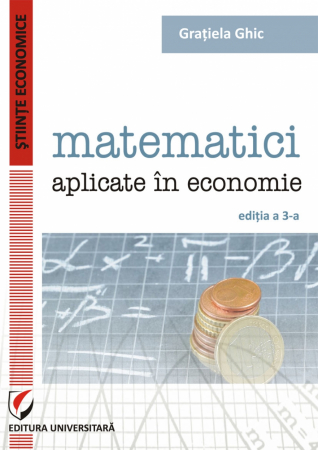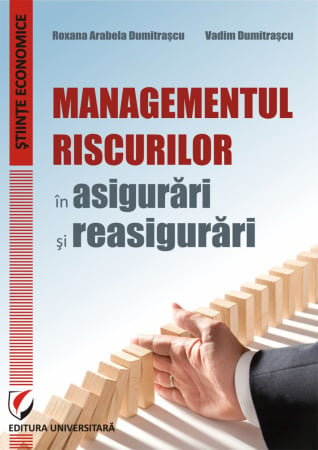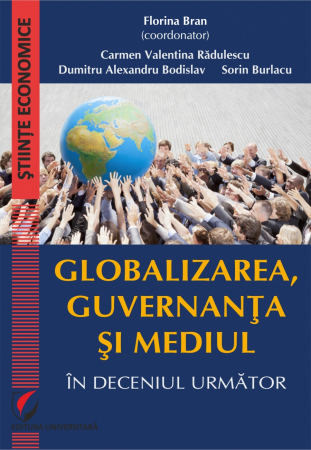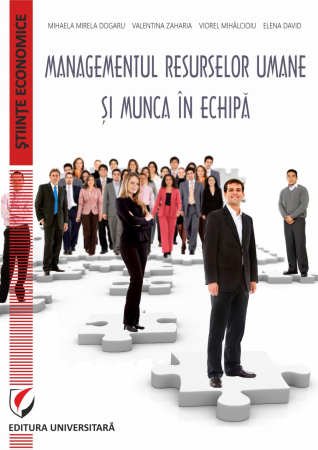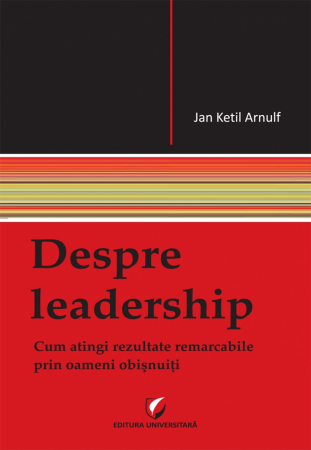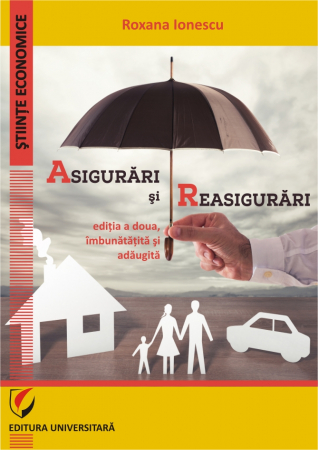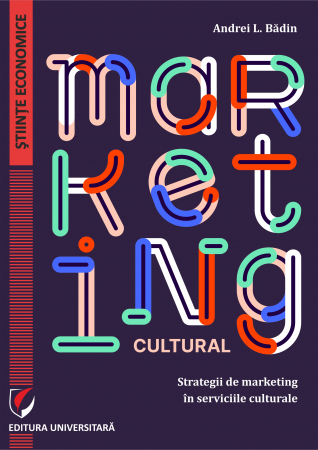ORDERS RECEIVED IN THE PERIOD 19.12.2025 - 07.01.2026 WILL BE FULFILLED STARTING ON 08.01.2026
Publisher: Editura Universitară
Author: Cristian Florea
ISBN: 978-606-28-1100-6
DOI: 10.5682/9786062811006
Publisher year: 2020
Edition: I
Pages: 150
Product Code:
9786062811006
Do you need help?
0745 200 357
- Description
- Download (1)
- Authors
- Content
- More details
- Reviews (0)
Today, international tourism is one of the most important economic branches in the world, occupying a strategic position through its contribution to the formation and size of GDP. It includes service-producing activities that are launched to meet the consumption needs of tourists. Tourism holds a share of about 5% of the Global Gross Product, generating 6-7% of the labor force.
On a global scale, in terms of revenue, international tourism occupies an important place after the oil sector and that of the chemicals and car manufacturing industry. However, the development of tourism also poses major challenges due mainly to the continuous growth of both domestic and international travel and, equally, the economic crisis that has affected the entire planet in a non-uniform way.
Romania must follow the path of harmonization with this global context and thus contribute to the amplification of the global consciousness. Therefore, Romania must correlate the concepts of "eco-management", respectively "ecotourism" in order to develop a sustainable tourism. In the perspective of the evolution and future development of tourism in Romania, it is necessary to take into account a series of factors, of which the most relevant are: economic, ecological, organizational, technical, demographic, psychological factors, etc. and to be able to support the implementation of crisis strategies in order to develop sustainable tourism.
On a global scale, in terms of revenue, international tourism occupies an important place after the oil sector and that of the chemicals and car manufacturing industry. However, the development of tourism also poses major challenges due mainly to the continuous growth of both domestic and international travel and, equally, the economic crisis that has affected the entire planet in a non-uniform way.
Romania must follow the path of harmonization with this global context and thus contribute to the amplification of the global consciousness. Therefore, Romania must correlate the concepts of "eco-management", respectively "ecotourism" in order to develop a sustainable tourism. In the perspective of the evolution and future development of tourism in Romania, it is necessary to take into account a series of factors, of which the most relevant are: economic, ecological, organizational, technical, demographic, psychological factors, etc. and to be able to support the implementation of crisis strategies in order to develop sustainable tourism.
-
Crisis Strategies in Sustainable Tourism Management. Case Study: Romania
Download
CRISTIAN FLOREA
Introduction / 7
Chapter 1 - Sustainable tourism - between theory and practice / 9
1.1. The concept of sustainable tourism / 9
1.2. The relationship between sustainable tourism and sustainable development / 14
1.3. The interaction between environment and sustainable tourism / 22
Chapter 2 - Dynamics of tourism at global and national level in the context of the economic-financial crisis / 30
2.1. Economic measures taken by international institutions to reduce the effects of the crisis on tourism / 30
2.2. The dynamics of sustainable tourism in the context of the current global crisis / 33
2.2.1. Dynamics of tourist arrivals and receipts at international level in the post-crisis period / 33
2.2.2. Top international destinations by number of arrivals and receipts and the situation in Europe in 2013/48
2.2.3. Top international destinations by number of arrivals and receipts and the situation in Europe in 2014/50
2.3. Analysis of arrivals and receipts in Romanian tourism / 51
2.4. The social impact determined by the number of tourist arrivals in Romania / 64
2.5. Environmental impact determined by the number of tourist arrivals in Romania / 66
Chapter 3 - Strategies and programs for promoting sustainable tourism in Romania / 69
3.1. Master Plan for the Development of National Tourism 2007-2026 / 69
3.2. National strategies implemented in Romania in the field of tourism / 73
3.2.1. Master Plan for the Development of Spa Tourism / 73
3.2.2. National ecotourism development strategy / 74
3.2.3. Strategy for promoting the national tourist brand / 75
3.2.4. National and international programs regarding the tourist development of Romania / 77
3.3. Perspectives of tourism in the conception of interest factors and investments in Romanian tourism / 80
3.4. Questionnaire on the economic crisis and the impact on the dynamics of tourism in Romania / 84
3.4.1. Analysis of the data obtained following the application of the questionnaire / 85
3.4.2. Conclusions following the application and analysis of the questionnaire / 96
Chapter 4 - Crisis strategies for the promotion and development of sustainable tourism in Romania / 100
4.1. The state of knowledge regarding the tourist situation in Sinaia resort / 100
4.2. SWOT analysis of the tourist situation in Sinaia resort / 104
4.3. Strategies for promoting forms of sustainable tourism / 106
4.4. Online application for ensuring the quality management of tourism in the city of Sinaia / 121
4.4.1. Presentation of the methodology / 121
4.4.2. Presentation of the computer system used / 127
4.5. Tourist program proposed for Sinaia resort in order to increase the average accommodation duration of non-resident tourists / 132
4.6. Impact of the implementation of the proposed strategy / 134
Conclusions / 137
Bibliography / 145
Chapter 1 - Sustainable tourism - between theory and practice / 9
1.1. The concept of sustainable tourism / 9
1.2. The relationship between sustainable tourism and sustainable development / 14
1.3. The interaction between environment and sustainable tourism / 22
Chapter 2 - Dynamics of tourism at global and national level in the context of the economic-financial crisis / 30
2.1. Economic measures taken by international institutions to reduce the effects of the crisis on tourism / 30
2.2. The dynamics of sustainable tourism in the context of the current global crisis / 33
2.2.1. Dynamics of tourist arrivals and receipts at international level in the post-crisis period / 33
2.2.2. Top international destinations by number of arrivals and receipts and the situation in Europe in 2013/48
2.2.3. Top international destinations by number of arrivals and receipts and the situation in Europe in 2014/50
2.3. Analysis of arrivals and receipts in Romanian tourism / 51
2.4. The social impact determined by the number of tourist arrivals in Romania / 64
2.5. Environmental impact determined by the number of tourist arrivals in Romania / 66
Chapter 3 - Strategies and programs for promoting sustainable tourism in Romania / 69
3.1. Master Plan for the Development of National Tourism 2007-2026 / 69
3.2. National strategies implemented in Romania in the field of tourism / 73
3.2.1. Master Plan for the Development of Spa Tourism / 73
3.2.2. National ecotourism development strategy / 74
3.2.3. Strategy for promoting the national tourist brand / 75
3.2.4. National and international programs regarding the tourist development of Romania / 77
3.3. Perspectives of tourism in the conception of interest factors and investments in Romanian tourism / 80
3.4. Questionnaire on the economic crisis and the impact on the dynamics of tourism in Romania / 84
3.4.1. Analysis of the data obtained following the application of the questionnaire / 85
3.4.2. Conclusions following the application and analysis of the questionnaire / 96
Chapter 4 - Crisis strategies for the promotion and development of sustainable tourism in Romania / 100
4.1. The state of knowledge regarding the tourist situation in Sinaia resort / 100
4.2. SWOT analysis of the tourist situation in Sinaia resort / 104
4.3. Strategies for promoting forms of sustainable tourism / 106
4.4. Online application for ensuring the quality management of tourism in the city of Sinaia / 121
4.4.1. Presentation of the methodology / 121
4.4.2. Presentation of the computer system used / 127
4.5. Tourist program proposed for Sinaia resort in order to increase the average accommodation duration of non-resident tourists / 132
4.6. Impact of the implementation of the proposed strategy / 134
Conclusions / 137
Bibliography / 145
Tourism, as a form and activity, has an antiquity that cannot be established exactly, although the term appeared in England around the 1700s to define travel activity in Europe (Nistoreanu, 2005a). Various forms of tourism have manifested themselves since ancient times, from the time when the Gathering Man traveled to procure food. Later, the Man-Farmer traveled to expand and improve his area by cultivating primary agricultural products.
Later, the Missionary Man traveled to spread Christianity to other countries where it did not exist. The Researcher Man, from the Middle Ages, traveled the world to know other lands and continents, better discovering the planet. Last but not least, the Man-Creator of Ideas and Innovations has traveled the world for technologies and inventions, especially in the IT field, in order to expose, present and capitalize on them. Thus, it came to the current form of tourism, known as travel and travel tourism or for rest and recreation, but also other forms of tourism.
Today, international tourism is one of the most important economic branches in the world, occupying a strategic position through its contribution to the formation and size of GDP. It includes service-producing activities that are launched to meet the consumption needs of tourists. Tourism holds a share of about 5% of the Global Gross Product, generating 6-7% of the labor force.
On a global scale, in terms of revenue, international tourism occupies an important place after the oil sector and that of the chemicals and car manufacturing industry. However, the development of tourism also poses major challenges due mainly to the continuous growth of both domestic and international travel and, equally, the economic crisis that has affected the entire planet in a non-uniform way.
Romania must follow the path of harmonization with this global context and thus contribute to the amplification of the global consciousness. Therefore, Romania must correlate the concepts of "eco-management", respectively "ecotourism" in order to develop a sustainable tourism. In the perspective of the evolution and future development of tourism in Romania, it is necessary to take into account a series of factors, of which the most relevant are: economic, ecological, organizational, technical, demographic, psychological factors, etc. and to be able to support the implementation of crisis strategies in order to develop sustainable tourism.
All the characteristics highlighted above represented the starting point and the reason why I decided to elaborate this paper.
Last but not least, I want to thank my supporters, my wife and family, but also the doctoral supervisor and the professors who inspired me and who offered me continuous support until the end.
The Author
Later, the Missionary Man traveled to spread Christianity to other countries where it did not exist. The Researcher Man, from the Middle Ages, traveled the world to know other lands and continents, better discovering the planet. Last but not least, the Man-Creator of Ideas and Innovations has traveled the world for technologies and inventions, especially in the IT field, in order to expose, present and capitalize on them. Thus, it came to the current form of tourism, known as travel and travel tourism or for rest and recreation, but also other forms of tourism.
Today, international tourism is one of the most important economic branches in the world, occupying a strategic position through its contribution to the formation and size of GDP. It includes service-producing activities that are launched to meet the consumption needs of tourists. Tourism holds a share of about 5% of the Global Gross Product, generating 6-7% of the labor force.
On a global scale, in terms of revenue, international tourism occupies an important place after the oil sector and that of the chemicals and car manufacturing industry. However, the development of tourism also poses major challenges due mainly to the continuous growth of both domestic and international travel and, equally, the economic crisis that has affected the entire planet in a non-uniform way.
Romania must follow the path of harmonization with this global context and thus contribute to the amplification of the global consciousness. Therefore, Romania must correlate the concepts of "eco-management", respectively "ecotourism" in order to develop a sustainable tourism. In the perspective of the evolution and future development of tourism in Romania, it is necessary to take into account a series of factors, of which the most relevant are: economic, ecological, organizational, technical, demographic, psychological factors, etc. and to be able to support the implementation of crisis strategies in order to develop sustainable tourism.
All the characteristics highlighted above represented the starting point and the reason why I decided to elaborate this paper.
Last but not least, I want to thank my supporters, my wife and family, but also the doctoral supervisor and the professors who inspired me and who offered me continuous support until the end.
The Author
If you want to express your opinion about this product you can add a review.
write a review

6359.png)
![Crisis Strategies in Sustainable Tourism Management. Case Study: Romania - Cristian Florea [1] Crisis Strategies in Sustainable Tourism Management. Case Study: Romania - Cristian Florea [1]](https://gomagcdn.ro/domains/editurauniversitara.ro/files/product/large/strategii-de-criza-in-managementul-turismului-durabil-studiu-de-caz-romania-10-638004.jpg)

